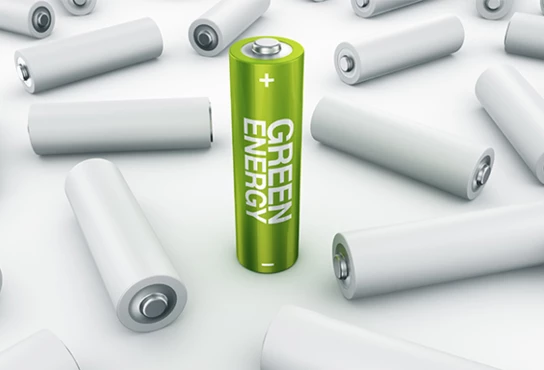5 tips to store your battery the right way
When you buy (rechargeable) batteries, you usually intend to keep them for as long as possible. Battery storage and battery care are thus vital for extending battery life. But where should you keep your (rechargeable) batteries while not in use? Here are 5 tips to take into account.

1. Keep them together
While storing batteries, the type of battery is critical. Separate them by age and manufacturer. Batteries from several manufacturers can cause damage, begin leaking, or react with one another.
2. Keep them as long as possible in their original packaging
If you buy new (rechargeable) batteries but don't use them right away, store them in their original package. This keeps the batteries from coming into contact with other metals. Avoid storing batteries in metal containers; instead, use a battery box or a plastic container. Keep coins and other metals separate in the same box. If you can't guarantee that the positive and negative terminals won't come into touch, cover the terminals with tape or plastic caps. When batteries come into touch with metals, they begin to conduct electricity.
3. Find a dry and cool place
Keep in mind that the temperature cannot be too high when storing your batteries. Batteries should be stored at roughly 15°C, according to the suggestion. Keep your batteries away from the sun and store them in a cool, dry place. When temperatures are excessive, a battery's charge capacity degrades. Keep in mind that when batteries are stored, they self-discharge. Nonetheless, even after ten years of storage, eneloop rechargeable batteries retain 70% of their capacity.
4. Check charge levels of your batteries
When storing the battery, always verify the charging level. Separate new and used batteries in separate containers. Nickel-based batteries (such as eneloop batteries) can be kept at any charge level. For the greatest results, Lithium Ion batteries should be stored at 30-50% of their maximum charge. When you're not going to recharge them for a few months, it's best to store them fully charged.
5. Watch out for humidity
Too much humidity is detrimental for battery storage. To keep them away from a high humidity environment, a vapor-proof container is a choice. The ideal humidity range is 35% to 65%. Never put your batteries in the freezer unless the manufacturer recommends it. The condensation in the fridge might cause internal battery damage. Keep these considerations in mind the next time you begin working with battery storage.

Contact


